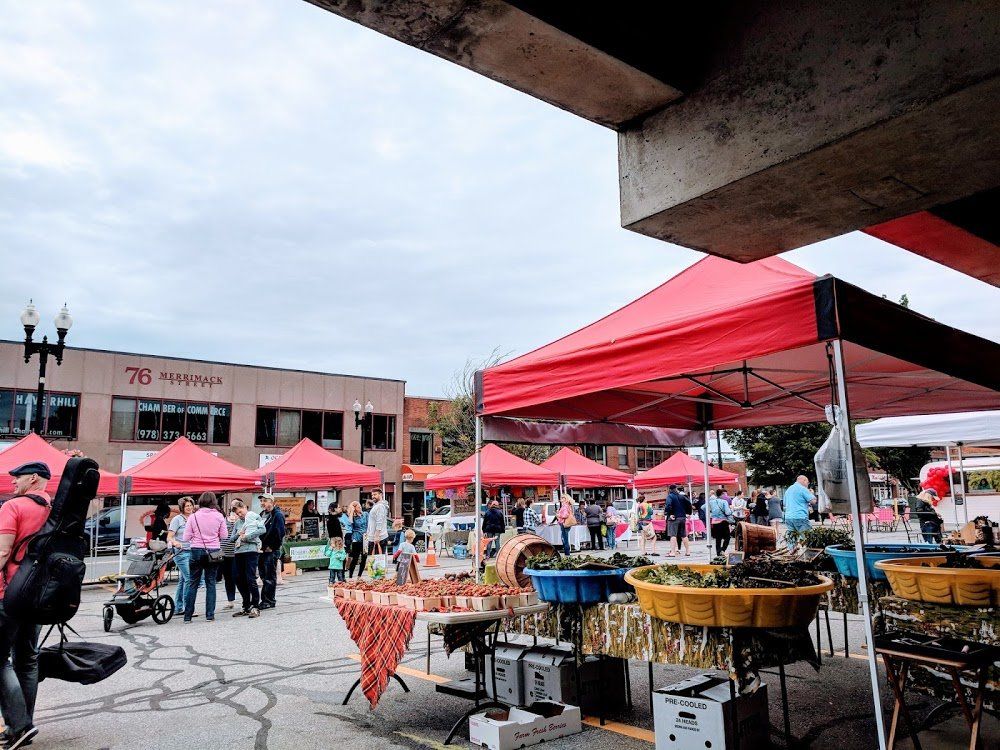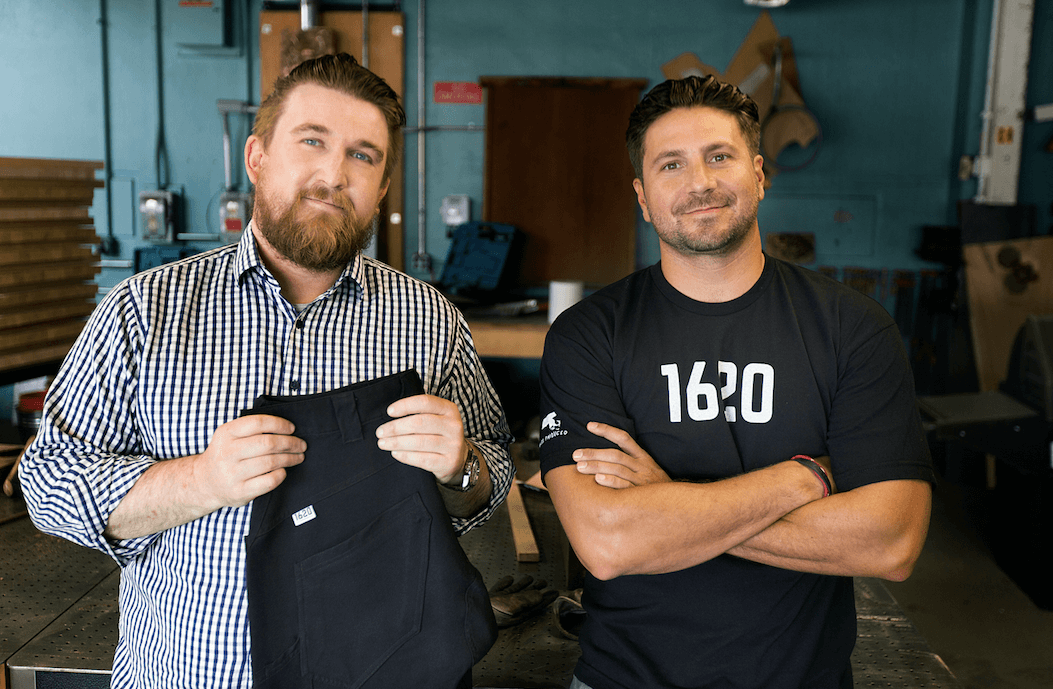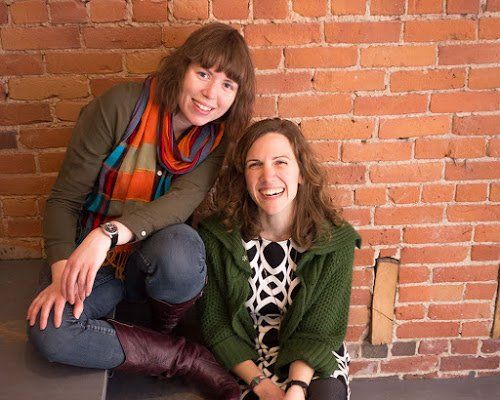Urban Vitality
New UMass Lowell Campus
Thriving Nightlight & Restaurants
Historic Waterfront Architecture
Vibrant Microbreweries & Cafés
Lifestyle
Hiking & Skiing Access
Parks, Rivers, & Nature
Golfing, Kayaking & More
Active Cycling Community
Affordable Real Estate
Distinctive Urban Loft Living
Diverse Spaces For All
Desirable Locations
Great Availability
Accessibility
Travel By Plane, Train, Or Car
30 Minutes To Boston Via Train
Two Downtown MBTA Stops
Multiple Airports Available
James J. Fiorentini - Mayor of Haverhill

“This innovation hub at Harbor Place will link the region's technology start-ups and entrepreneurs to resources that facilitate the development of manufacturing and commercialization of their respective innovations."
Jacqueline Moloney, Chancellor, UMass Lowell
“Having our company headquarters in Haverhill just made sense. Its convenient to everything. It’s close enough to Boston to be connected, but far enough to easily transport merchandise without congestion.”
Raymond Bolger, President, Runtal Radiators
“There are a lot of young professionals moving to Haverhill. It’s near the highway, close to New Hampshire. You have the commuter rail and Amtrak Downeaster and the great thing about Haverhill is you are minutes away from various activities. You’re right on the river, close to the mountains and beaches, and there are plenty of hiking and mountain biking trails in the city and throughout the area.”
Salvatore DeFranco, Founder & CEO, Battle Grounds Coffee
“Haverhill is on the move as a Gateway City taking full advantage of its distinctive assets, including educational and cultural institutions, and, historic buildings for economic growth. Harbor Place is one of the largest projects launched in the Merrimack Valley in decades and is a transformative investment for Haverhill.”
Brian Dempsey, Chief Operating Officer, ML Strategies
“As a high tech manufacturer with products on Mars I have had success operating in Haverhill. We are one of three circuit board manufacturers left in Massachusetts. Haverhill has been good for our business.”
Peter Bigelow, President/CEO, IMI
“Being located in Haverhill has been advantageous for us. We have easy access to a large workforce within walking distance and the infrastructure to do business affordably.”
Steve Schaefer, VP of Operations, Joseph’s Gourmet Pasta
“The City of Haverhill has been very supportive of Magellan's business. Recently we requested a meeting with the mayor and assistance from the City. The Mayor was very supportive and the City followed through. Haverhill’s attention and responsiveness is unparalleled. The initiatives underway in the City of Haverhill - the focus on improving the schools, the vibrant downtown and the beautification projects all make Haverhill an attractive community for our Magellan employees to work and live."
Norm Royce, General Manager, Magellan Aerospace
“Haverhill has been a great place to work, they have been very accommodating, which make our jobs easier.”
Don Tanguay, Manager of Customer Logistics, Mondelez International
“Haverhill has been a phenomenal place for my business. The location and prices set it apart. I can spend time with clients in Boston and manufacture products just 30 miles away. Its integration with the Greater Boston market has been essential for me and the City couldn’t be more helpful. I feel proud to be part of the community here and couldn’t imagine being anywhere else.”
Rich Breault, President, Lightspeed Manufacturing
“Haverhill has been a phenomenal place for my business. The location and prices set it apart. I can spend time with clients in Boston and manufacture products just 30 miles away. Its integration with the Greater Boston market has been essential for me and the City couldn’t be more helpful. I feel proud to be part of the community here and couldn’t imagine being anywhere else.”
Rich Breault, President, Lightspeed Manufacturing
“Downtown Haverhill is in the midst of a major renaissance, with distinctive lofts and riverfront housing opportunities, local shops, a new riverfront boardwalk, a burgeoning restaurant scene, and a growing creative community. Compact, walkable, and transit accessible. Downtown Haverhill is a vibrant and convenient location for residents and businesses, and serves as a busy hub for the broader community.”
Noah Koretz, Deputy Director of Transformative Development, MassDevelopment
“Operating in Haverhill has been good for us. The City has helped us at every turn whether it’s workforce solutions or business support programs. We are pleased to be invested in this community.”
Warren Seitz, Site Director, EMD Performance Materials
“When you do a project in Haverhill, you can count on expedited permitting. It is our goal to have your project approved in one public meeting. We have done the on large and small projects ranging from $3 to $70 million. Time is money, and Haverhill is the quickest.”
Bill Pillsbury, Director of Planning and Economic Development, City of Haverhill
“Haverhill has been a wonderful place for our company. The City is always willing to ‘go to bat’ for our business and its proximity to the highway has made it easy for us to move our products.”
Andries Du Plessis, General Manager, Cabot Corporation
“It's the right vision, and it’s the right place, and it's the right set of projects and initiatives. We are enormously proud to be part of what's happening in Haverhill.”
Charlie Baker, Governor of Massachusetts

By Nate Robertson
•
15 Sep, 2019
Every community has a chunk of land that people scratch their heads over. Sometimes it’s an overgrown patch of grass in a residential neighborhood, or a long vacant building in the middle of downtown, and or a decaying parking lot. For Haverhill it’s the latter. Haverhill Massachusetts is a pocket sized city on the banks of the Merrimack River. It’s an old New England mill city with a dense urban core and roads that radiate outward from downtown like spokes on a wheel. Over the years its weathered the seasons and the global economy with varying degrees of grace. One half of downtown retains its old Victorian aesthetic alongside renovated residential mill buildings. The other half of downtown Haverhill was reconfigured with single story buildings and paved over with parking lots as part of 70’s era “Urban Renewal”. Large under-used spaces are bad for downtowns. They discourage walkability, pedestrian safety, and are economically unproductive. This is why parking lots in high density urban areas are looked down upon as wastes of space. Redeveloping large parking lots is a priority for downtown and urban cores throughout the United States. The Goecke Parking Deck in Haverhill is a massive City-owned parking deck smack in the middle of downtown. Its two stories high and spans over three acres of land. On its busiest days its 50% full, most days it's far below that. For the past few years the area has been the focus of local redevelopment efforts. In 2017 the parking deck was transformed into an ideal city block complete with pop up shops, temporary store fronts, bike lanes, and crosswalks. The event was organized and put on by Team Better Block , City of Haverhill , and MassDevelopment’s Transformative Development Initiative . These organizations use temporary low cost changes to urban spaces as a catalyzing tool for downtowns. This practice is known as “Tactical Urbanism”. The Haverhill "Better Block" event had tremendous results with hundreds of people using the space in a totally different way. It got the community thinking about the space differently and catalyzed local entrepreneurs who worked the market space. It was the very next spring that the Haverhill Farmers Market decided to take over the parking deck every Saturday from June till October allowing them to expand to a more central downtown space in the heart of the City. This goes to show how a single event can help motivate more consistent and permanent change. The results were transformative, the Haverhill Farmers Market saw: 25% increase in customers 20% increase in sales 80% increase in vendors One vendor decided to open up a permanent store downtown New crosswalks painted to accommodate all of the people walking around Adjacent businesses saw more sales and new customers More foot traffic downtown, on boardwalk, and rail trail Rebranding - people refer to the space as “Farmers Market Lot” not “Parking Deck” The Haverhill Farmers Market is a huge success and attracts thousands of people to Haverhill’s downtown - generating economic activity and casting the old parking lot in a whole new light. It highlights the success of one-off activities like Better Block, which lay the groundwork for continued transformation by reshaping how people understand and see space in their communities. The success of the market and increase in both vendors and customers are the result of creative placemaking and tactical urbanism. Small cities, often strapped for resources, don’t need a lot to make a small difference. Intensely focusing on one city block makes small changes add up quickly and catalyze into more transformative urban changes. The "nothing-happens-here" cycle has been broken. Just because the lot now hosts a popular farmers market, other events like food festivals, arts markets, and music nights, are being planned by other organizations in an effort to build off of it. These events would have been impossible two years earlier, because the space was not a destination for a critical mass of people. The Haverhill Farmers Market will continue to draw more and more people to a space that has been seeing declining use for decades. It may not seem like a huge success, but its small changes like this that knit together an urban fabric that gives downtowns desirability and staying-power. It goes to show that a little tactical urbanism can have transformative effects that radiate throughout the community. If you have a free Saturday this summer, I recommend coming to Haverhill and checking it out yourself.

By Nate Robertson
•
15 Sep, 2019
Textile manufacturing is coming back to the United States and Haverhill is getting a piece of the action. If you had told me that five years ago I would have laughed it off, but we live in interesting times. As the cost of labor increases overseas and the demand for well-made local products increases some companies have found a sweet spot for clothing manufacturing in the United States. Here in Haverhill we are proud to host the world headquarters of 1620 Workwear, a new clothing startup located at 45 Wingate Street, right downtown. What happened in 1620 you may ask? Well it’s when the Mayflower pulled up to Plymouth Rock to see what was going on. 1620 Workwear set up shop in Haverhill this summer. Two Merrimack Valley guys, Josh Walker and Ted De Innocentis, decided to take the plunge together. When they were looking at places to open their offices, Haverhill jumped on their radar because of the beautiful downtown buildings at a fraction of the cost of Boston. This isn’t their first foray into textiles, both have extensive histories of working with overseas clothing manufacturing, but they wanted to come back to Massachusetts and do something here. Now with a headquarters in Haverhill the two entrepreneurs feel at home. Their vision is that working men in the manual labor world would be willing to pay a little extra for durable clothing that can keep up with them at the job site. Guys in the manual labor world know that clothing can wear out quickly and 1620 Workwear knows it too. A quick glance at their website shows that they have brand ambassadors across the United States like commercial fisherman Matt Arsenault from Plum Island or Spenser McCleskey an Alaskan welder. The one thing that these guys have in common is a need for clothing that can keep up with their lives and 1620 Workwear has their products in just about every situation. Every piece of clothing produced by 1620 Workwear comes from the United States. Staying true to their working class New England roots the majority of the clothing is manufactured in Everett, Massachusetts and then shipped to customers across the world. The press has noticed too, with write-ups on AOL.com and the Boston Globe, 1620 Workwear is beginning to make a name for themselves. Ted and Josh’s vision is coming to life in Haverhill. Made in Haverhill is a monthly series published in Haverhill Life about manufacturers in Haverhill. Contact us to suggest a business for this column. Nate Robertson Assistant Director Economic Development, City of Haverhill

© 2019
Resources
Information
© 2019











